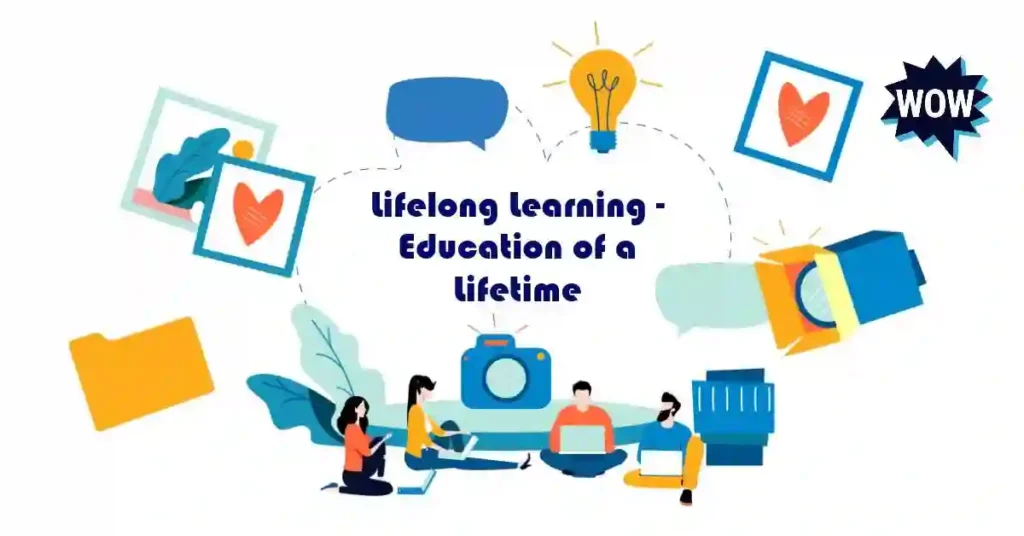Life is full of challenges and setbacks, and adversity can strike at any moment. In these trying times, resilience—the ability to bounce back from adversity and continue moving forward—is a crucial quality. Education plays a significant role in building resilience by providing individuals with the knowledge, skills, and mindset to face adversity head-on. In this article, we will explore the connection between education and resilience and how education equips individuals to overcome life’s challenges.
Understanding Resilience
Resilience is not a fixed trait; it is a dynamic quality that can be developed and strengthened over time. It involves the capacity to adapt, recover, and even grow stronger in the face of adversity. Resilient individuals possess emotional strength, problem-solving abilities, and a positive outlook that helps them navigate life’s ups and downs.
Education as a Path to Resilience
Education serves as a powerful tool for fostering resilience in individuals. It equips them with the following attributes and skills that are essential for overcoming adversity:
- Knowledge and Awareness: Education provides individuals with knowledge about various subjects, including the world around them and the challenges they may encounter. This knowledge empowers individuals to make informed decisions and navigate difficult situations.
- Critical Thinking: Education promotes critical thinking skills, which are crucial for analyzing problems, evaluating options, and making sound decisions during adversity. Critical thinking encourages individuals to approach challenges with a solution-oriented mindset.
- Problem-Solving Skills: Education teaches problem-solving skills that enable individuals to identify obstacles, develop strategies, and find creative solutions to overcome adversity. Problem-solving skills are invaluable when facing unexpected challenges.
- Emotional Intelligence: Emotional intelligence is the ability to recognize, understand, and manage one’s emotions and the emotions of others. Education fosters emotional intelligence by promoting self-awareness, empathy, and effective communication—all of which are essential for resilient responses to adversity.
- Growth Mindset: Education encourages a growth mindset, the belief that abilities and intelligence can be developed through effort and perseverance. This mindset helps individuals view challenges as opportunities for growth and learning.
- Coping Mechanisms: Education can teach individuals healthy coping mechanisms, such as stress management, mindfulness, and self-care. These techniques help individuals navigate adversity while maintaining their mental and emotional well-being.
- Resilience Training: Some educational programs and institutions offer resilience training or courses that specifically focus on building resilience skills. These programs provide individuals with tools and strategies to enhance their ability to bounce back from setbacks.
Promoting Resilience through Education
Education is not only about acquiring knowledge; it is also about nurturing the whole person, including their emotional and psychological well-being. Here are ways in which education promotes resilience:
- Supportive Learning Environments: Educational institutions can create supportive and inclusive learning environments that foster emotional well-being and resilience. Teachers and educators play a vital role in creating safe spaces where students can express themselves and seek help when needed.
- Character Education: Many educational programs incorporate character education, which focuses on developing virtues such as perseverance, courage, and resilience. These programs instill values that help students navigate challenges with integrity and determination.
- Mentorship and Guidance: Mentors and counselors in educational settings provide valuable guidance and support to students facing adversity. They offer a listening ear, advice, and strategies for coping with challenges.
- Social and Emotional Learning: Social and emotional learning (SEL) programs are designed to teach students essential life skills, including self-awareness, self-management, social awareness, relationship skills, and responsible decision-making. These skills contribute to emotional resilience.
- Community Engagement: Education often encourages students to engage with their communities and make a positive impact. Community service and volunteerism can foster a sense of purpose and resilience by helping individuals see their ability to make a difference, even in the face of adversity.
Overcoming Educational Challenges
Education itself can be a source of adversity for some individuals, particularly those facing financial barriers, discrimination, or learning disabilities. However, education also offers opportunities for overcoming these challenges:
- Access to Resources: Education provides access to resources and support systems that can help individuals overcome educational challenges. Scholarships, financial aid, and tutoring services are examples of resources available to students.
- Advocacy and Awareness: Education can raise awareness of issues such as learning disabilities, discrimination, and inequality. This awareness can lead to advocacy efforts that promote equity and inclusivity in educational settings.
- Accommodations: Educational institutions can offer accommodations and support for students with learning disabilities or other challenges. These accommodations ensure that all individuals have an equal opportunity to succeed in their educational pursuits.
- Building a Support Network: Education allows individuals to connect with peers who may share similar challenges. Building a support network of friends and mentors can provide emotional and practical support during difficult times.
Conclusion
Education is a powerful catalyst for building resilience in individuals. It equips them with the knowledge, skills, and mindset needed to face adversity, adapt to change, and persevere in the face of challenges. By promoting critical thinking, problem-solving abilities, emotional intelligence, and a growth mindset, education empowers individuals to navigate life’s obstacles with resilience and emerge stronger on the other side.
Educational institutions, educators, and parents all play a vital role in nurturing resilience in individuals. By creating supportive learning environments, offering character education, and providing emotional support, they contribute to the development of resilient individuals who are well-prepared to overcome adversity and thrive in the face of life’s challenges. Education is not just a pathway to knowledge; it is also a pathway to resilience, personal growth, and a brighter future.
